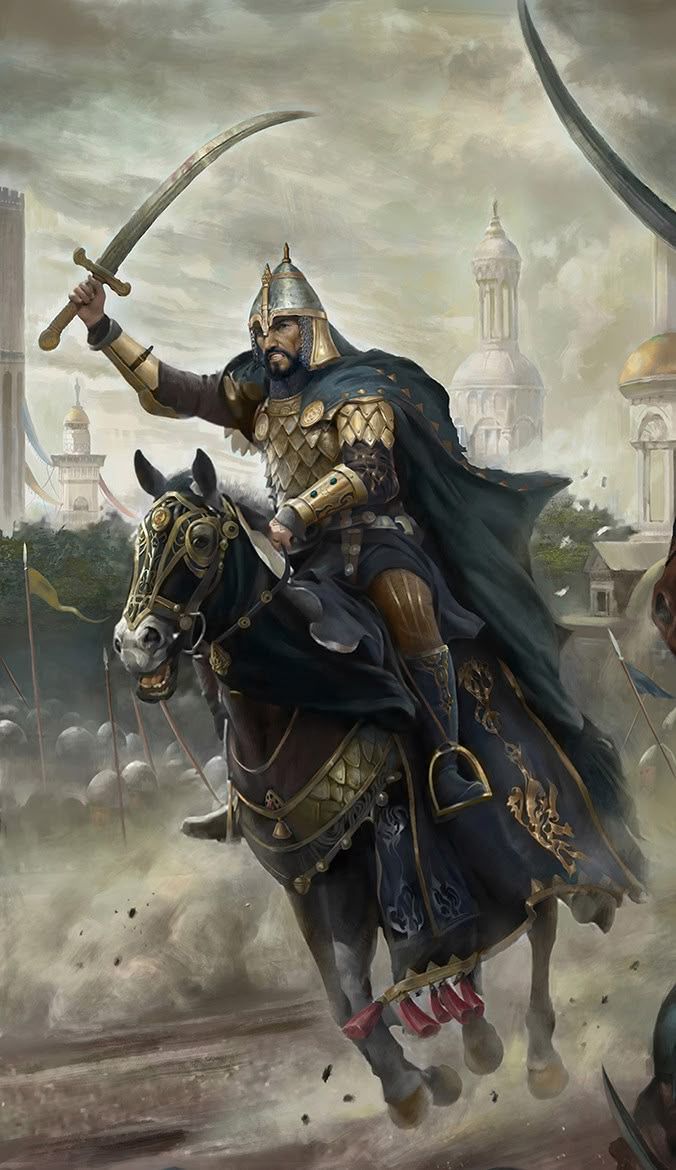The world witnessed Europe enter a new era with the advent of the Crusades during the Middle Ages. It was through interactions with the Middle East and the constant shift of power that European society became acquainted with Arabian knowledge. However, along with societal change and the beginning of enlightenment, the world also witnessed the degradation of humanity as people massacred each other in the name of religion.
In the wake of these wars and turmoil, fate favored one man. It is one of the miracles of that time, as we see. To this day, it seems as though fate had handpicked this man for the monumental task he accomplished. A man with no thirst for power, yet who found himself constantly thrust into conflicts, with fate handing him titles effortlessly. He did not desire the opportunity, but luck played its part. Of course, this man needs no introduction: Sultan Salahuddin Ayubi.
The Rise of Sultan Salahuddin Ayubi
Sultan Salahuddin Ayubi was a Kurdish ruler of the 12th century, famous for the reconquest of Jerusalem. He united the Muslims under one caliphate and created the first notable opposition to the Crusader armies. During this time, he became the subject of animosity from many — the Muslim states that wanted to fragment and maintain their own power, the Nizaris of Alamut, and the Crusader kings, all had their eyes on him. Yet, it is interesting to see how he persevered not only in strength but also in chivalry and modesty.
To properly assess his journey, we must first understand his background. Salahuddin began his rise to power alongside his uncle Shirkuh. It was at this time that he gained his first experience in warfare and leadership. Shirkuh, a commander under Nur-ud-Din Zengi, took Salahuddin along on military campaigns. Under his uncle’s leadership, Salahuddin witnessed many skirmishes and eventually proved himself as a capable young leader, gaining political exposure. The expedition to Egypt in 1168 set in motion a chain of events that paved the way for Salahuddin’s rise.
Salahuddin’s Political Ascendancy
The nations under the caliphate of Damascus were wavering, and Nur-ud-Din Zengi struggled to maintain control. To complicate matters, the Fatimid Caliphate of Egypt presented further challenges. When Shirkuh was sent to Egypt and failed to make peace with the governor of Cairo, the Zengid forces engaged in skirmishes. In 1169, Shirkuh became the new governor of Egypt, strengthening Zengi’s control over the region. Salahuddin, still alongside his uncle, entered the political arena, although his name remained in the background.

However, fate had other plans. Shirkuh fell ill and passed away two months later. In a surprising turn, Salahuddin was appointed Vizier, and he quickly subdued all rebellious elements that arose. At the time, the Fatimid Caliph was a young boy with no real authority, and Salahuddin took advantage of this power vacuum. In 1171, during a formal Jumma prayer, Salahuddin ordered that the name of the Abbasid Caliph be mentioned, thus dismantling the Fatimid Caliphate and uniting the Muslim world.
The Rise to Power and the Crusader Challenge
It was around this time that Salahuddin encountered the Christian forces for the first time and had several small battles with them. His rule, however, would not remain confined to a single region. The sudden death of Nur-ud-Din in 1174 created a power vacuum in Syria, and Salahuddin moved swiftly at the request of the Abbasid Caliph to capture Damascus. Over the next decade, he expanded his influence, conquering Aleppo in 1183 and Mosul in 1186, solidifying his position as Sultan.
As Sultan, Salahuddin posed a direct threat to the Kingdom of Jerusalem. He negotiated treaties with Christian rulers while also consolidating his military forces. After the death of King Baldwin, tensions between the Crusaders and Muslims escalated. The Crusaders’ broken promises provided Salahuddin with the opportunity to lay siege to Jerusalem. The Crusaders made several mistakes, notably at the Battle of Hattin, and Salahuddin, utilizing both his military strength and intelligence, turned the tide. By late 1187, he stood at the gates of Jerusalem.
The Third Crusade and Richard the Lionheart
When Richard the Lionheart led the Third Crusade in 1191, Salahuddin faced another challenge. His armies were not strong enough to engage the Crusaders head-on. However, Richard’s arrogance and lack of knowledge of the terrain played into Salahuddin’s hands. Using his strategic brilliance, Salahuddin outwitted the Crusader forces, securing a victory in the region.

A Miracle of Destiny?
There is no doubt that Salahuddin was a military genius. However, how he rose to that pedestal seems more like a series of fortunate coincidences rather than a meticulously planned ascent. This is what sets him apart from other great leaders. Alexander the Great worked relentlessly for his throne, and Julius Caesar spent years gaining power. But Salahuddin? Opportunities were handed to him, and he seized them with brilliance. It would not be wrong to say that destiny was on his side.
To be favored by destiny is one thing, but to be blessed with intellect is another. History regards people like Salahuddin with deep respect and honor. The circumstances he faced were, in many ways, tests, in which he proved his mettle and showed his excellence. From assassination attempts to overcoming all odds, Salahuddin knew what needed to be done. For this, we continue to pay homage to him to this day, for Sultan Salahuddin Ayubi was truly a miracle of the desert.
















